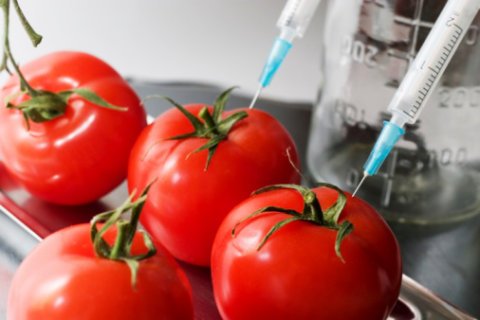
The word “Genetic” means involving, resulting from, or relating to genes or genetics. Genetic modification also referred to as alteration of genetic material is the alteration and recombination of genetic material by technological means, resulting in transgenic organisms. It is also known as “Genetic Engineering”.
Have you eaten GM foods? Are GM foods safe?
Let’s find out.
Survey of US consumers
Non-partisan Pew Initiative on Food and Biotechnology
- 48 % opposed to GM foods, 25% in favor
- 2001 58% opposed to GM foods
- 24% say they’ve eaten GM foods
- 58% say they haven’t
In 2003 (USDA) genetically modified crops accounted for:
- 40% of all corn
- 81% of soybeans
- 73% of cotton
In 2002
- 35% of corn
- 55% of soybeans
Grocery Manufactures of America (2003)
- 70-80% of processed foods contain GMO
USDA approval for potatoes, tomatoes, melons, beets and nicotine free tobacco.

The benefits of Genetically Engineered Foods include:
Reduce use of pesticides. Bacillus thuringiensis (Bt), A “natural” pesticide used by organic farmers produces a protein toxic to insect larvae. The Gene for Bt toxin incorporated into corn, etc. Corn plant produces Bt protein toxin.
Reduce erosion of topsoil due to tilling
Tilling for weed control. Monsanto’s “Roundup” (glyphosate) inhibits plant’s ability to make tryptophan. Tryptophan is an essential amino acid for humans.
Roundup resistant plants (soybeans). It splices bacterial gene into plant that is resistant to effect of Roundup (still able to make tryptophan).
Improved nutritional quality of plants e.g “golden rice” which is rice with B-carotene gene.
Improved protein quality & quantity
Higher vitamin content.
Improved sensory properties e.g Tomato and strawberry flavor & texture in food.

FOOD AND HEALTH ISSUES
Pesticide resistant insects
Unintentional environmental effects e.g monarch butterfly larvae - lab study
Affect beneficial insects (ladybugs)
Development of “super weeds” , “super bugs” and “super diseases ”.
Deterioration of Food Production in the long run.
Terminator gene: GMO’s produce plants with gene designed to produce sterile seeds.
7.It gives Biotech firms too much control over food production.

We have to discerning to make sure we consume the right foods.
What is your take on Genetically modified foods? I’d love to hear it.
Comment, Upvote, Resteem and follow me @iamfranklinn . I’ll follow back.
Personally, if given a choice, I'd prefer natural, non-gmo food, grown from mother-nature. However, I do realize that's not entirely possible, given the current state of the growing population.
However, I do feel that more check-and-balances ought to be enforced on these companies - to ensure that sufficient health safe-guards are in place, and that the pursuit of profit is NOT their main goal.
Slap on a hefty fine, perhaps even jail-term for the directors of thee companies if they break the law.
I support you.
right.
upvoted thanks for sharing
Raw food grows with ordinary nature is better...
col
Dispite the advantages listed but the biggest disadvantage is that of failure in the long run to get seeds for future multiplication or reproduction. Unless they measure to preserve the seeds but where are they going to be applied when environment is polluted with GMO plants and animals.
exactly.
Kool
Hmmmmm
Nice writeup,u av earned my vote
Hello, informative post you have but one thing is missing: YOUR PICTURE REFERENCE I believe I have told you before. Thanks